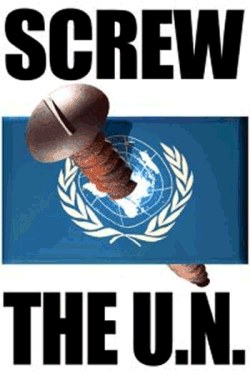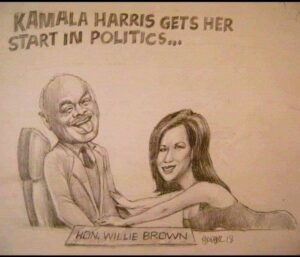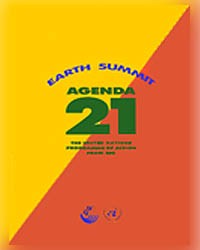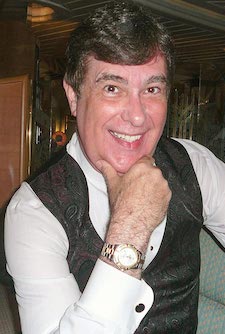 Solar and wind farms to eliminate gas and oil; 15 Minute Cities; eliminating single-family homes; eliminating gas-powered cars; stop eating beef; no more warm water showers; ban ice cubes and electric stoves; Sustainable! How did these radical ideas become official policies in our once great American cities, now on the verge of collapse? Here’s the story.
Solar and wind farms to eliminate gas and oil; 15 Minute Cities; eliminating single-family homes; eliminating gas-powered cars; stop eating beef; no more warm water showers; ban ice cubes and electric stoves; Sustainable! How did these radical ideas become official policies in our once great American cities, now on the verge of collapse? Here’s the story.
San Francisco is the birthplace of the United Nations. On June 5th, 2005, it was also the location for a major effort by the UN to circumvent national and state governments in order to reorganize human society. Coincidentally, the date was also World Environment Day. This time the UN was targeting mayors from all over the world to enlist them to be soldiers in the Sustainable war.
Like a scene from Michael Crichton’s landmark novel State of Fear, all the usual suspects, our self-appointed saviors, were there. There were UN bureaucrats seeking to increase their power and influence, NGOs with their private agendas, Hollywood celebrities acting like authorities on how Americans should rightly live, leaders of corporations seeking to help devise global regulations to kill their competition, and representatives from national and local news outlets that long ago had lost any pretense of delivering unbiased news.

Did Willie have company?
They were all there. UN Secretary General Kofi Annan, along with the host committee, including San Francisco Mayor Willie Brown and Senator Diane Feinstein. Helping to host were the federal Environmental Protection Agency (EPA), and Jonathan Lash of the World Resources Institute. Walking among the crowd were actors Robert Redford and Martin Sheen. As everyone fawned over them, singer Judy Collins could be heard inspiring the gathering with her emotional lyrics. Of course, to be expected were representatives from ICLEI. They had recently teamed with Robert Redford and the Mayor of Salt Lake City, Utah to form an environmental congress called the Sundance Summit. Also in attendance were the leaders of the Natural Resources Defense Council (NRDC), the legal arm of the radical Green movement that worked diligently to frighten Americans about everything in our society — from the food we eat, to the chemicals we use and the water we drink. Corporate sponsors included Federal Express, Toyota Prius, and Mitsubishi International Corporation Foundation, all dedicated to capitalizing on Sustainable Development practices. All of these forces were ready to do their dance and perform their magic tricks to influence your mayor to join their game.
As the cheerleading and drum circles faded, the gathering got down to the serious business. As part of their participation in the conference, the mayors were pressed to commit their communities to specific legislative and policy goals by signing a slate of United Nations accords. Two documents were presented for the mayors’ signatures.
 The first document was called the “Green Cities Declaration,” a statement of principles which set the agenda for the mayors’ assigned tasks. It said, in part, “Believing as Mayors of cities around the globe, we have a unique opportunity to provide leadership to develop truly sustainable urban centers based on culturally and economically appropriate local actions.” The Declaration was amazingly bold in that it detailed exactly how the UN intended to implement a very specific agenda in every town and city in the nation. The document included lots of rhetoric about the need to curtail greenhouse gasses and preserve resources. But the final line of the Green Cities Declaration was the point of the whole affair: “Signatory cities shall work to implement the following Urban Environment Accords. Each year cities shall pick three actions to adopt as policies or laws.”
The first document was called the “Green Cities Declaration,” a statement of principles which set the agenda for the mayors’ assigned tasks. It said, in part, “Believing as Mayors of cities around the globe, we have a unique opportunity to provide leadership to develop truly sustainable urban centers based on culturally and economically appropriate local actions.” The Declaration was amazingly bold in that it detailed exactly how the UN intended to implement a very specific agenda in every town and city in the nation. The document included lots of rhetoric about the need to curtail greenhouse gasses and preserve resources. But the final line of the Green Cities Declaration was the point of the whole affair: “Signatory cities shall work to implement the following Urban Environment Accords. Each year cities shall pick three actions to adopt as policies or laws.”
The raw meat of the agenda was outlined in detail in the second document, called the “Urban Environment Accords.” The Accords included exactly 21 specific actions (as in Agenda 21) for the mayors to take, controlled by a timetable for implementation.
 Here’s a quick look at a few of the 21 agenda actions called for. Under the topic of energy, action item number one called for mayors to implement a policy to increase the use of “renewable” energy by 10% within seven years. Renewable energy includes solar and wind power.
Here’s a quick look at a few of the 21 agenda actions called for. Under the topic of energy, action item number one called for mayors to implement a policy to increase the use of “renewable” energy by 10% within seven years. Renewable energy includes solar and wind power.
Not stated in the UN documents is the fact that in order to meet the goal, a community would have to reserve thousands of acres of land to set up expensive solar panels and even more land for wind turbines. Consider that it takes a current 50 megawatt gas-fired generating plant about two to five acres of land to produce its power, yet to create that same amount of power through the use of solar panels would require at least 1,000 acres. Using windmills to generate 50 megawatts would require over 4,000 acres of land, while creating a deafening roar and chopping up birds. The cost of such “alternative” energy to the community would be vastly prohibitive, yet such unworkable ideas became the environmentally-correct order of the day that the mayors were being urged to follow.
Perhaps the most egregious action offered in the Urban Environmental Accords dealt with the topic of water. Action item number twenty called for adoption and implementation of a policy to reduce individual water consumption by 10% by 2020. Interestingly, the document begins by stating: “Cities with potable water consumption greater than 100 liters per capita per day will adopt and implement policies to reduce consumption by 10 percent by 2015.”
There is no basis for the 100 liter figure other than employing a very clever use of numbers to lower the bar and control the debate. One must be aware that 100 liters equals about 26 gallons per person, per day. According to the UN, each person should only have 10% less than 26 gallons each day to drink, bathe, flush toilets, wash clothes, water lawns, wash dishes, cook, and more.
 However, according to the U.S. Geological Survey, Americans actually need about 100 GALLONS per day to perform these basic functions. Consider also that there is no specific water shortage in the United States. According to the U.S. Environmental Protection Agency, annual water withdrawal across the nation is about 407 billion gallons, while consumption (including evaporation and plant use) is about 94 billion gallons. Such restrictions, as outlined in the Urban Environment Accords, are really nothing more than a dishonest campaign by the UN to control water consumption. That’s why in San Francisco, the nation’s mayors were being pushed to impose policies to take away our free use of water. Control the water, control the people.
However, according to the U.S. Geological Survey, Americans actually need about 100 GALLONS per day to perform these basic functions. Consider also that there is no specific water shortage in the United States. According to the U.S. Environmental Protection Agency, annual water withdrawal across the nation is about 407 billion gallons, while consumption (including evaporation and plant use) is about 94 billion gallons. Such restrictions, as outlined in the Urban Environment Accords, are really nothing more than a dishonest campaign by the UN to control water consumption. That’s why in San Francisco, the nation’s mayors were being pushed to impose policies to take away our free use of water. Control the water, control the people.
The rest of the Accords dealt with a variety of subjects including waste reduction, recycling, transportation, health, and nature. Perhaps the most outrageous promise of action was Action number sixteen in which the mayors were supposed to agree to: “Every year identify three products, chemicals, or compounds that are used within your city that represents the greatest risk to human health and adopt a law to eliminate their sale and use in the city.”
There you have it. Every year, our nation’s mayors were to promise to ban something! What if there isn’t a “chemical or compound” that poses a risk? Gotta ban something anyway!
That’s not an idle threat. In the 1990s, Anchorage, Alaska had some of the most pristine water in the nation. It had no pollution. Yet the federal government ordered the city to meet strict federal clean water standards that required it to remove a certain percentage of pollution from its water. It’s pretty hard to comply with such regulations when the situation simply doesn’t exist. But government never was built around logic. Regulations must be obeyed. In order to meet those requirements, Anchorage was forced to dump fish parts into its pristine water so that it could then clean out the required quotas of “pollution.” Your city’s mayor may have to ban the ink in your fountain pen to meet his quota — and ban it he will!
 What was to be each mayor’s reward for destroying private property rights, increasing energy costs on less consumption, and banning something useful every year? He would get Green Stars! That’s right. According to UN documents, if your mayor could successfully complete 8 to 11 of the prescribed 21 actions, the town would get a green star and the designation, “Local Sustainable City.” Twelve to 17 actions completed would garner two green stars and the designation, “National Sustainable City.” Fifteen to 18 actions completed would bring in three green stars and the title, “Regional Sustainable City.” Finally, the energizer bunny mayor who completed 19 to 21 actions would get a full four green stars and the ultimate designation of, “Global Sustainable City.” Certainly, he or she would also get a plaque and get to sit at the head table at the next UN Sustainable Development conference.
What was to be each mayor’s reward for destroying private property rights, increasing energy costs on less consumption, and banning something useful every year? He would get Green Stars! That’s right. According to UN documents, if your mayor could successfully complete 8 to 11 of the prescribed 21 actions, the town would get a green star and the designation, “Local Sustainable City.” Twelve to 17 actions completed would garner two green stars and the designation, “National Sustainable City.” Fifteen to 18 actions completed would bring in three green stars and the title, “Regional Sustainable City.” Finally, the energizer bunny mayor who completed 19 to 21 actions would get a full four green stars and the ultimate designation of, “Global Sustainable City.” Certainly, he or she would also get a plaque and get to sit at the head table at the next UN Sustainable Development conference.
Sustainable Development is truly stunning in its all-encompassing reach to transform the world into feudal-like governance by making nature the central organizing principle for our economy and society. It is a scheme fueled by unsound science and discredited economics that can only lead modern society down the road to a new Dark Ages of human misery. It is a policy of banning goods and regulating and controlling human action. It is systematically implemented through the creation of non-elected visioning boards and planning commissions. There is no place in the Sustainable world for individual thought, private property, or free enterprise. It is the exact opposite of the free society envisioned by this nation’s founders.
America’s mayors are the elected representatives closest to the people. They are the ones that our founders intended to have the most influence over our daily lives. The UN and NGO forces knew exactly what they were doing by going to the mayors to enforce the policies locally. It accelerates the process much faster, one city at a time, than going through the congressional process. But after decades of this process, alert Americans are beginning to understand that the ability of local citizens to choose their own locally controlled government is ceasing to exist under UN sustainable policy dictates. But signs, adorned with green stars certainly greet us at many city limit lines. Yet, inside those city limits are the inhabitants, stripped of their property rights, buried under huge tax burdens, and struggling under reduced energy flow. As they struggle to maintain a livable lifestyle, their proud mayor gleams in the global limelight under the banner “think globally and act locally.”
Again, the UN’s meeting with the mayors took place in 2005. Do the dictates of the Green Cities Declaration still guide the process? Well, as usual, over time the names change, but the policies become more targeted and radical.
 Fourteen major American cities are part of a globalist climate NGO known as the “C40 Cities Climate Leadership Group.” The goal of the group is “0” meat and dairy consumption by 2030. Also included in the goals are “0” private vehicles owned by citizens, only “one” short-haul air flight per person every 3 years, and “3” new clothing items per person per year.
Fourteen major American cities are part of a globalist climate NGO known as the “C40 Cities Climate Leadership Group.” The goal of the group is “0” meat and dairy consumption by 2030. Also included in the goals are “0” private vehicles owned by citizens, only “one” short-haul air flight per person every 3 years, and “3” new clothing items per person per year.
The group is funded mainly by Democrat billionaire Mike Bloomberg, and nearly 100 cities across the world are members. In the U.S. members include Austin, Boston, Chicago, Houston, Los Angeles, Miami, New Orleans, New York City, Philadelphia, Phoenix, Portland, San Francisco, Washington, D.C., and Seattle. Most recently we’ve learned that Ohio cities, Cleveland, Cincinnati, and Dayton have recently joined.

das ist der Schwab
Now as the plan is exposed, the group swears that these are “not policy recommendations,” but rather just “different emission-reduction alternatives and long-term urban visions.” But we’re watching them unfold daily.
Most notable, in the current era, is the Circular Economy, leading to Circular Cities. Of course, the main force promoting the Circular Economy is the World Economic Forum (WEF) and its Great Reset. The WEF actually provides instruction for local elected officials to help them impose the very same plans as outlined in the Green Cities Declaration.
One of the main policy goals of the Circular Economy is the elimination of cash money, to be replaced with digital currency. Once digital currency is in control imagine the control each mayor will then hold over each citizen. Every action will be monitored. Break the sustainable rule and every dime you have in bank accounts will be confiscated from such an unworthy citizen.
As the WEF’s head, Klaus Schwab said, “Own nothing and be happy!” Right out of the Green Cities Declaration. Freedom dies at the whim of a mayor competing for his next plaque.
June 2, 2024
© 2024 Tom DeWeese – All Rights Reserved
~ The Author ~
 Thomas A. DeWeese is the President of the American Policy Center.
Thomas A. DeWeese is the President of the American Policy Center.
Tom is one of the nation’s leading advocates of individual liberty, free enterprise, private property rights, personal privacy, back-to-basics education and American sovereignty and independence.
Tom DeWeese’s commentaries may not be reprinted or republished without permission. All Rights Reserved. Submitted to and published by Kettle Moraine, Ltd. by arrangement, and with permission of the author.
